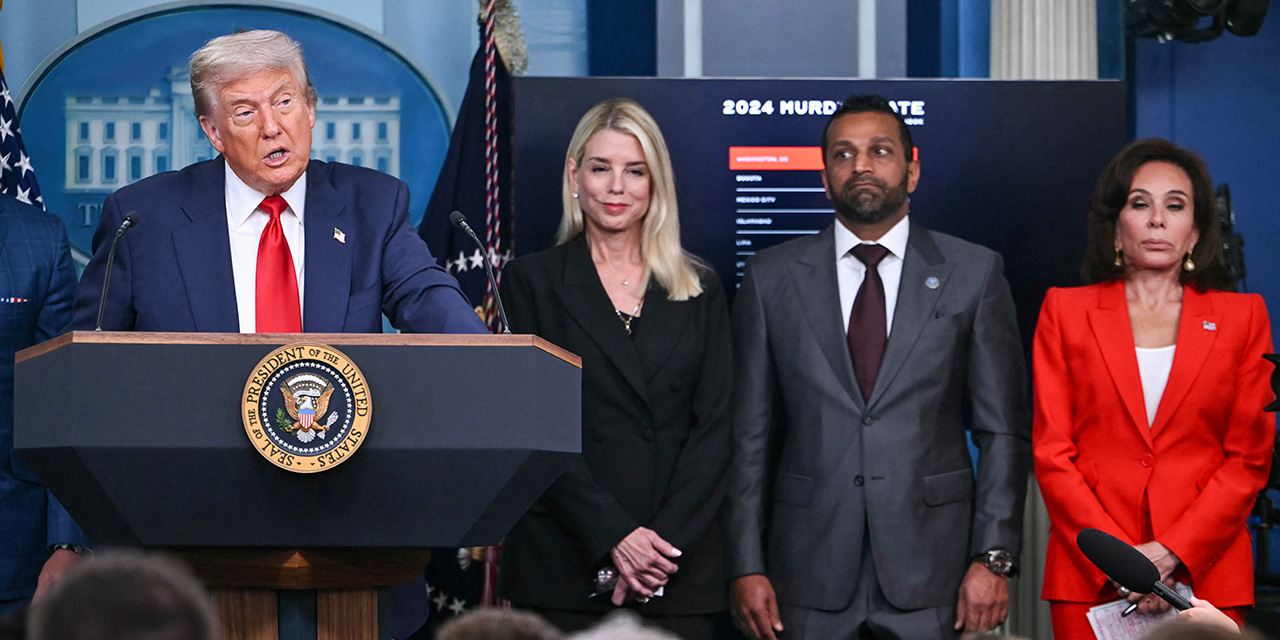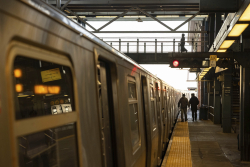
In a Monday morning press conference, President Donald Trump announced new, decisive action to quell crime and violence in the District of Columbia. Flanked by Cabinet officials, the president indicated that he will not only deploy National Guardsmen to the city but also temporarily federalize the D.C. police department (MPD) under an obscure provision of the District’s home rule law.
Trump’s moves follow an assault last week on 19-year-old Edward Coristine, a Department of Government Efficiency software engineer, who was allegedly beaten by a group of 15-year-old assailants during an attempted carjacking. President Trump blamed the attack on soft-on-crime policies and suggested that he is considering reasserting direct federal control over the nation’s capital city. Congressional Republicans, who see the District as a convenient punching bag, eagerly voiced support for more aggressive action, including ending D.C.’s “home rule.”
Finally, a reason to check your email.
Sign up for our free newsletter today.
Ending home rule is both unlikely and probably imprudent. But Congress and the president have many options to consider short of its revocation. From hiring more police officers to appointing a “control board” to run the criminal justice system, history and law present several levers that the Trump administration should consider pulling to improve residents’ lives.
For most of American history, Congress exercised its constitutional prerogative to govern D.C. through standing committees dedicated to overseeing its affairs. In 1871, Congress inaugurated an experiment in home rule but repealed it three years later amid financial mismanagement. Congress then established a three-member commission government, all of whom were appointed by the president. President Lyndon B. Johnson later replaced that commission with a nine-member council and a single commissioner, all appointed by the White House. Finally, in 1973, Congress passed the District of Columbia Home Rule Act, delegating its authority to today’s local government.
This home-rule arrangement grants Congress and the president significant federal oversight powers that, until now, have gone largely unused. Some of these reflect Congress’s final lawmaking authority over the District—such as Congress’s right to review and veto laws passed by the D.C. Council and to approve the budget through annual appropriations legislation.
Other congressional and executive powers pertain specifically to the criminal justice system, the area that most concerns congressional Republicans and D.C. residents. The president appoints the U.S. Attorney for the District of Columbia, who prosecutes both federal crimes and most of the more serious crimes in D.C., and the District’s local judges. Under the city code, the president can also declare an emergency and take control of the MPD for 30 days—as Trump has just done.
Congress has occasionally intervened in home rule. In 1995, after another period of fiscal mismanagement, Congress established a five-member fiscal control board, appointed by the president, with the power to override the local government’s laws and decisions. The control board suspended its activities in September 2001, having achieved four consecutive years of balanced budgets and compliant audits.
While Congress can terminate home rule wholesale, the current arrangement offers advantages. A government focused exclusively on conditions in the District benefits from better information and a greater ability to specialize and respond quickly to residents’ needs. D.C. residents have come to expect a range of services that the federal government is poorly situated to deliver. The city administers over $20 billion in annual spending—a responsibility fit for a full government, not a congressional committee.
That said, the city’s local leadership is failing. D.C. residents are worried about crime, according to polling from the Washington Post and George Mason University’s Schar School. Even as violence declines, mirroring improvements nationwide, pervasive public disorder and shocking incidents like the assault on Coristine continue to capture public attention. The federal government should exercise a firmer hand, just as states sometimes preempt local governments when they fail to address statewide priorities.
At the very least, Congress should expand the capacity of the criminal justice system—which, as one of us wrote last year, has flagged for some time. That could mean authorizing federal funds for hiring Metropolitan Police Department officers or for repairing and expanding jail capacity—both of which could be passed through the appropriations process, evading the filibuster. Congress could also waive its involvement in confirming D.C. judges, as congressional gridlock has contributed to vacancies on the District Superior Court, which have slowed the administration of justice.
Another avenue for Congress is to exercise its power to review local legislation more frequently. Since vetoes under the Home Rule Act require only a joint resolution of disapproval, simple majorities in each chamber suffice to strike down legislation. Congress exercised this power just two years ago when it blocked a rewrite of the criminal code, and it could use a heavier hand in similar cases in the future.
Taking a cue from the city’s successful fiscal reorganization in the 1990s, Congress could also establish a control board with jurisdiction over the District’s criminal-justice system. The board would be tasked with ensuring that D.C. has sufficient capacity to ensure that laws can be faithfully executed, overriding local legislation that stands in the way, such as restrictions on cash bail. Such a board, which could be composed of local and federal stakeholders, would target the city’s persistent crime problems without ending home rule.
The White House has options, too. President Trump has already exercised his emergency authority to federalize the MPD for a month. In that time, he can direct them to target juvenile crime, gang activity, and visible disorder, with the goal of bringing a lasting reduction in such activity. At the same time, he can send a clear message that he is willing to intervene when the local government fails to protect D.C. residents.
Finally, and perhaps most radically, Congress could give the federal government greater influence by adding presidentially appointed seats to the D.C. Council, akin to LBJ’s 1967 reform. These council members would represent the federal government’s interests, as determined by the current administration. Such a move would be particularly aggressive and potentially not worth the political cost. But it could serve as a final warning shot, short of ending home rule.
The president’s concerns about disorder and violence in the nation’s capital reflect those of many city residents. Ending home rule is perhaps too strong a medicine for the problem. But history and law present several potential tools that the president and Congress can use to address the city’s dysfunction.
Photo by ANDREW CABALLERO-REYNOLDS/AFP via Getty Images
City Journal is a publication of the Manhattan Institute for Policy Research (MI), a leading free-market think tank. Are you interested in supporting the magazine? As a 501(c)(3) nonprofit, donations in support of MI and City Journal are fully tax-deductible as provided by law (EIN #13-2912529).
Source link

















